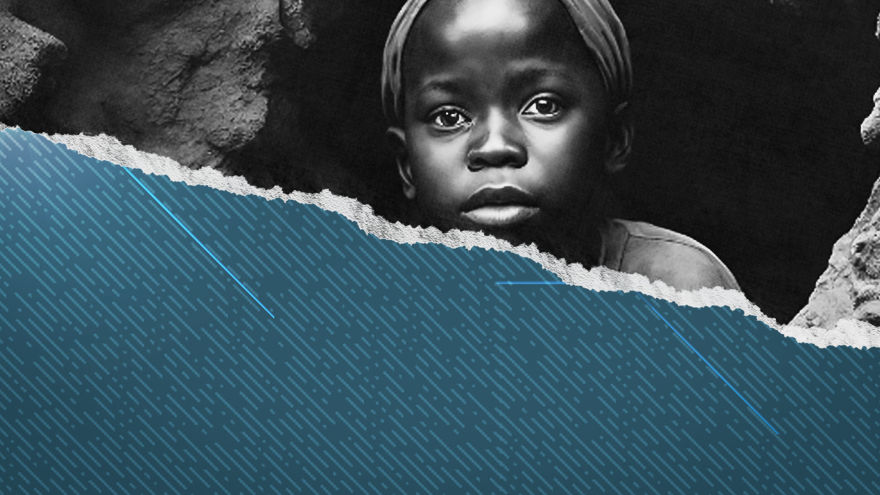As the world shifts towards clean energy technologies to achieve ambitious net-zero carbon emissions goals within the next decade, concerns are mounting over the human cost of sourcing essential materials, particularly rare earth minerals like cobalt. Rare earth minerals are indispensable components of green technology, powering innovations such as lithium-ion batteries crucial for electric vehicles. Yet, their scarcity and skyrocketing demand have ignited a modern-day gold rush, with cobalt emerging as a coveted prize. Almost all lithium-ion rechargeable batteries worldwide rely on cobalt in their manufacturing process. However, the noble aspirations of transitioning to clean energy risk being tarnished by the grim realities of cobalt mining, a practice likened to modern-day slavery. The Democratic Republic of the Congo (DRC), home to an estimated 3.4 million metric tons of cobalt, finds itself at the epicenter of this ethical quagmire. With nearly half of the world's known cobalt reserves, the nation has become a focal point of global demand. However, behind this lucrative industry lies a tale of exploitation and human suffering. As demand for cobalt skyrockets, hundreds of thousands of Congolese have flocked to the southern reaches of the DRC to toil in industrial mines. Yet, instead of opportunities for prosperity, many find themselves ensnared in horrific conditions. Siddharth Kara, a distinguished fellow at Harvard's T.H. Chan School of Public Health and Kennedy School, has dedicated two decades to researching issues of modern-day slavery, child labor, and human trafficking. He paints a harrowing picture of the cobalt mining landscape, where freelance workers endure harsh conditions for low wages. He says that there is no such thing as a clean supply chain for cobalt, and that much of the DRC’s cobalt is extracted by “artisanal miners,” freelance workers who perform dangerous labor for just a few dollars per day. "You have to imagine walking around some of these mining areas and dialing back our clock centuries," Kara says. "People are working in subhuman, grinding, degrading conditions. They use pickaxes, shovels, stretches of rebar to hack and scrounge at the earth in trenches and pits and tunnels to gather cobalt and feed it up the formal supply chain." Moreover, the health risks posed by cobalt exposure loom large over these communities. Kara warns of the toxic nature of cobalt, with scores of impoverished Congolese exposed to its harmful effects on a daily basis. As he explained, “Cobalt is toxic to touch and breathe — and there are hundreds of thousands of poor Congolese people touching and breathing it day in and day out. Young mothers with babies strapped to their backs, all breathing in this toxic cobalt dust.” Advocates say there are no viable alternatives in the DRC. Entire communities have been uprooted to make way for mining operations, leaving residents trapped in a cycle of poverty and despair. On Dec. 16, 2019, tech giants including Apple, Alphabet, Google, Microsoft, Dell and Tesla found themselves embroiled in a lawsuit filed by human rights group International Rights Advocates on behalf of 14 Congolese parents and children. The lawsuit alleges complicity in the exploitation of child labor in cobalt mines, implicating major corporations in the tragic consequences of this unethical supply chain. Some families named in the lawsuit say that children were working illegally at mines owned by United Kingdom mining company Glencore. Other plaintiffs say they worked at mines owned by Zhejiang Huayou Cobalt, a major Chinese cobalt firm, which the suit says supplies Apple, Dell, and Microsoft. Exploiting the extreme poverty in the DRC, workers were paid as little as $2 per day, the suit alleges, to perform backbreaking work with primitive tools in dark underground tunnels. The families say some children were killed in tunnel collapses, while others were paralyzed or suffered life-changing injuries from accidents. Faced with mounting pressure, companies have issued statements reaffirming their commitment to ethical sourcing practices. A spokesperson for Google told the BBC that the company was "committed to sourcing all materials ethically and eliminating child mining in global supply chains.” An Apple spokesperson told the BBC the company was "deeply committed to the responsible sourcing of materials" and "if a refiner is unable or unwilling to meet our standards, they will be removed from our supply chain. We've removed six cobalt refiners in 2019.” According to the World Bank, the DRC is among the five poorest countries on earth, where nearly 62 percent of Congolese live on less than $2.15 per day.In a race to curb carbon emissions and stave off what global leaders believe will be a climate change-induced calamity, Western nations are grappling with a moral conundrum: the dark underbelly of the green revolution.
Loading...
Loading...
International /
World's Rush To 'Net Zero' Emissions Is Fueling Modern Day Slavery
Child labor & human trafficking expert says 'People are working in subhuman, grinding, degrading conditions'

*For corrections please email [email protected]*
